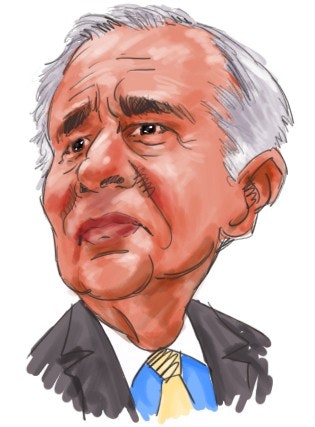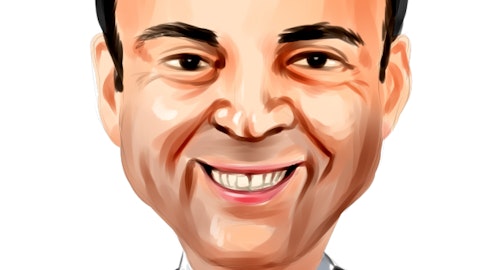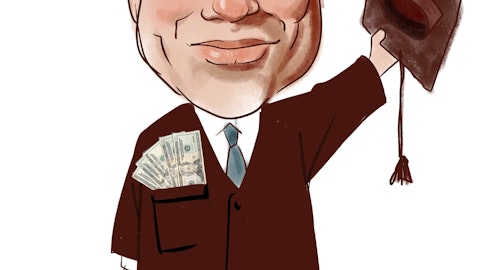
Tiger Global loves Groupon. As we originally discussed last week, Tiger Global, the mega-hedge fund with Chase Coleman and Feroz Dewan at the helm, recently undertook a massive stake in Groupon Inc (NASDAQ:GRPN). In its latest 13F filing, Tiger Global reported that it had initiated a new position in the third quarter, despite the fact that the stock has lost nearly 85% of its value year to date. In a more recent schedule 13G filing with the SEC, Tiger Global disclosed the details on its position, i.e. that it holds a whopping 9.9% stake in the daily deal company’s common stock.
Officially worth $202.1 million based on Groupon’s last stock price, this news is huge, and may be driven by the company’s push to open concept stores where its customers can physically test products. Its first store opened in Hong Kong this week. At a bargain bin valuation of 12.9 times forward earnings, Groupon is cheap, and sell-side analysts expect 25-30% growth in annual EPS over the next five years.
Icahn exercises call options on Netflix. At the end of the third quarter, Carl Icahn reported holding $68 million worth of Netflix, Inc. (NASDAQ:NFLX), and the billionaire’s position in the company has spiked as of late. In an amended 13D filing this week, Icahn disclosed that he exercised call options on the streaming content company, and still owns $450.8 million worth, good for a shave under 10% of Netflix’s outstanding shares.
Icahn originally announced a 9.98% stake in the company on October 31st, which leads one to deduce that the hedge fund manager must have sold some shares at a higher price, thereby replacing them with his call options. Netflix’s stock price had risen nearly 17% after Icahn’s original purchase, allowing him to see a nice profit while his takeover battle ensues.
It’s no secret that Icahn is pressuring the company’s management for a sale to a larger tech player, but Reed Hastings and co. initiated a so-called “poison pill” defense mechanism earlier this month, where the company can send new shares into the markets. This, in effect, would make an acquisition more costly. Icahn has called the plan, which is activated if an individual acquires more than 10% of the company, ” discriminatory.”
In comparison to competitors like Redbox owner Coinstar, Inc. (NASDAQ:CSTR) and Amazon.com, Inc. (NASDAQ:AMZN), who is still fine-tuning its streaming service, Netflix has decent growth prospects. Sell-side analysts expect the company to experience EPS growth of 23.2% a year over the next half-decade, which is close to half of its previous five-year average, but above Coinstar (17.4%). Amazon, meanwhile, is expected to see annual EPS growth of 34.1% over this time frame, but its shares trade at a much more expensive growth multiple — a PEG of nearly 100.0. Netflix currently sports a PEG of 4.4, while Coinstar looks to be the most attractive, at 0.5.
Steadfast Capital downsizes OpenTable. At the end of the second quarter, Robert Pitts and Steadfast Capital Management held a little over $58.4 million worth of OpenTable Inc. (NASDAQ:OPEN) and in its latest 13F filing with the SEC, the New York-based hedge fund downsized this position to $53.9 million. In a schedule 13G this week, Pitts’s fund cut his holdings in the restaurant e-reservation company again, and now holds close to 80% worth of his Q3 position.
While Steadfast still owns 4.5% of OpenTable’s common stock outstanding, we can’t help but see the fund’s moves as bearish. Shares of the company have gained close to 11% in 2012 thus far, but aren’t too attractive from a valuation standpoint, trading at elevated trailing (43.4X) and forward (22.6X) earnings multiples. At its current price in the mid $43 range, OpenTable is closing in on targets set by Oppenheimer ($46) and Benchmark ($49), showing that even in the most bullish of scenarios, moderate appreciation is all that looks to be in store for this stock at the moment.





